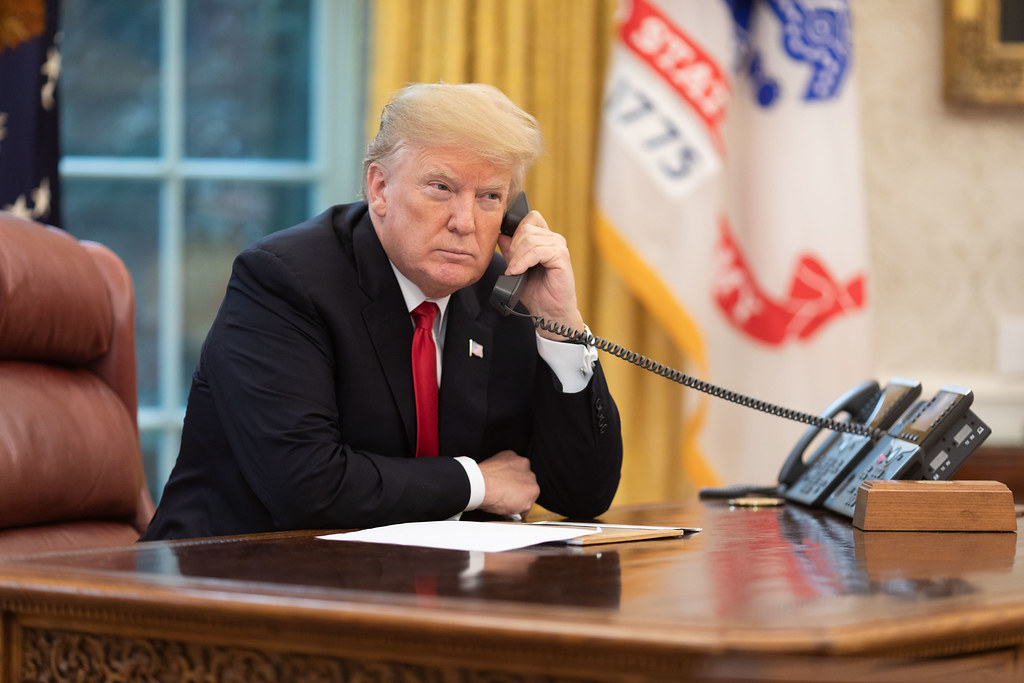Trump’s Ukraine Call: Do we really want a President’s private talks with world leaders exposed for all to hear?
The story of Donald Trump ’s phone call to Ukraine’s new president is unfolding in the familiar if depressing Trump -era pattern. An accusation leaks from an unidentified intelligence source about the President’s July 25 call, and his political and media opponents immediately conclude he has betrayed America and deserves censure or impeachment. Mr. Trump says the conversation was “perfectly fine and routine.” The public is left to sort the truth from the partisan histrionics.
Mr. Trump acknowledges that he asked Ukraine’s new President Volodymyr Zelensky to investigate Joe Biden as part of his effort to clean up corruption. More on Mr. Biden later, but Mr. Trump’s request showed bad judgment. He was trying to draw a foreign leader into the middle of American presidential politics, which can only lead to political trouble. We learned that from the Russia fiasco of 2016.
The request to Mr. Zelensky is worse if it came with a threat to cut off U.S. military aid. Mr. Trump and others say there was no quid pro quo request. But we know the Trump Administration delayed U.S. aid to Ukraine in early July for unexplained reasons. The U.S. released the aid later after bipartisan criticism of the delay. Mr. Zelensky surely understood the potential risk of not complying with Mr. Trump’s request even if Mr. Trump wasn’t explicit.
What we know of the call underscores Mr. Trump’s greatest flaw as President, which is his political narcissism. Every decision boils down to how it affects him or his re-election prospects. Other Presidents have made similar calculations, but Mr. Trump lacks the basic filter to know when he is crossing a line that creates trouble for himself or the country.
***
Yet in making sense of all this it’s impossible to ignore the excesses and double standards of Mr. Trump’s opponents. Like the Russia collusion claims, this one began with a charge from an unidentified source in the intelligence bureaucracy. He’s reported to be a “whistleblower,” but we know nothing about his role, his access or his motivation.
An inspector general has found the claim credible enough to require reporting to Congress’s intelligence committees. But the acting director of national intelligence disagrees after consulting with the Justice Department’s Office of Legal Counsel. As we read the relevant whistleblower statute, section 3033(k), it doesn’t seem to apply to the President and probably not even to the substance of this accusation.
More troubling is that none of the whistleblower’s cheerleaders in the press and Congress seem to care about the precedent of making a President’s private calls with other world leaders open to public scrutiny. Imagine if this happened to JFK ’s calls amid the Cuban Missile Crisis or to Richard Nixon ’s during the Arab-Israeli war of 1973. We have reached a dangerous pass if intelligence officials feel they have open season to use whistleblower laws whenever they dislike a President or one of his policies.
Read the rest of this WSJ Editorial Board’s op-ed HERE.







Comments are closed.